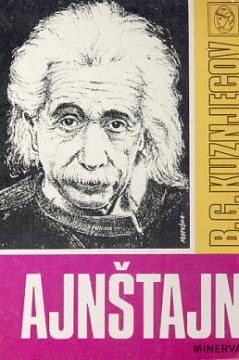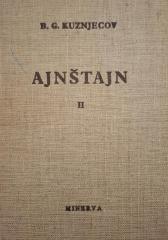
Ajnštajn
The work, divided into three parts, follows Einstein's life, work, and intellectual contributions in detail, with an emphasis on his revolutionary contributions to physics, especially the theory of relativity.
Kuznetsov, a Soviet philosopher and historian of science, not only describes Einstein's scientific achievements, but also contextualizes his life within the social, political, and cultural turmoil of his time. The book explores Einstein's personality, his humanistic views, his pacifism, and his engagement in social issues, such as his fight against Nazism and his support for civil rights. In addition, Kuznetsov analyzes the philosophical and methodological approach to Einstein's scientific work, highlighting his ability to combine intuition with rigorous scientific methodology. The first part of the book focuses on Einstein's early life, education, and the development of his ideas, including key papers from 1905 (often called the "Annus Mirabilis"), which included the theory of special relativity and work on the photoelectric effect. The second part covers his work on the general theory of relativity and the worldwide fame he gained after the confirmation of his theories. The third part deals with Einstein's later years, including his life in exile in the United States, his political engagement, and his efforts to develop a unified field theory. The book is written with an emphasis on scientific precision, but also with accessibility for a wider audience, combining biographical detail with deep insights into scientific thought. Kuznetsov's approach reflects his interest in the dialectics of science and philosophy, making this biography not only a history of Einstein's life, but also a reflection on the nature of scientific discovery.
Knjiga se sastoji od tri toma.
Jedan višetomni primerak je u ponudi.

- Unterschrift des Vorbesitzers







